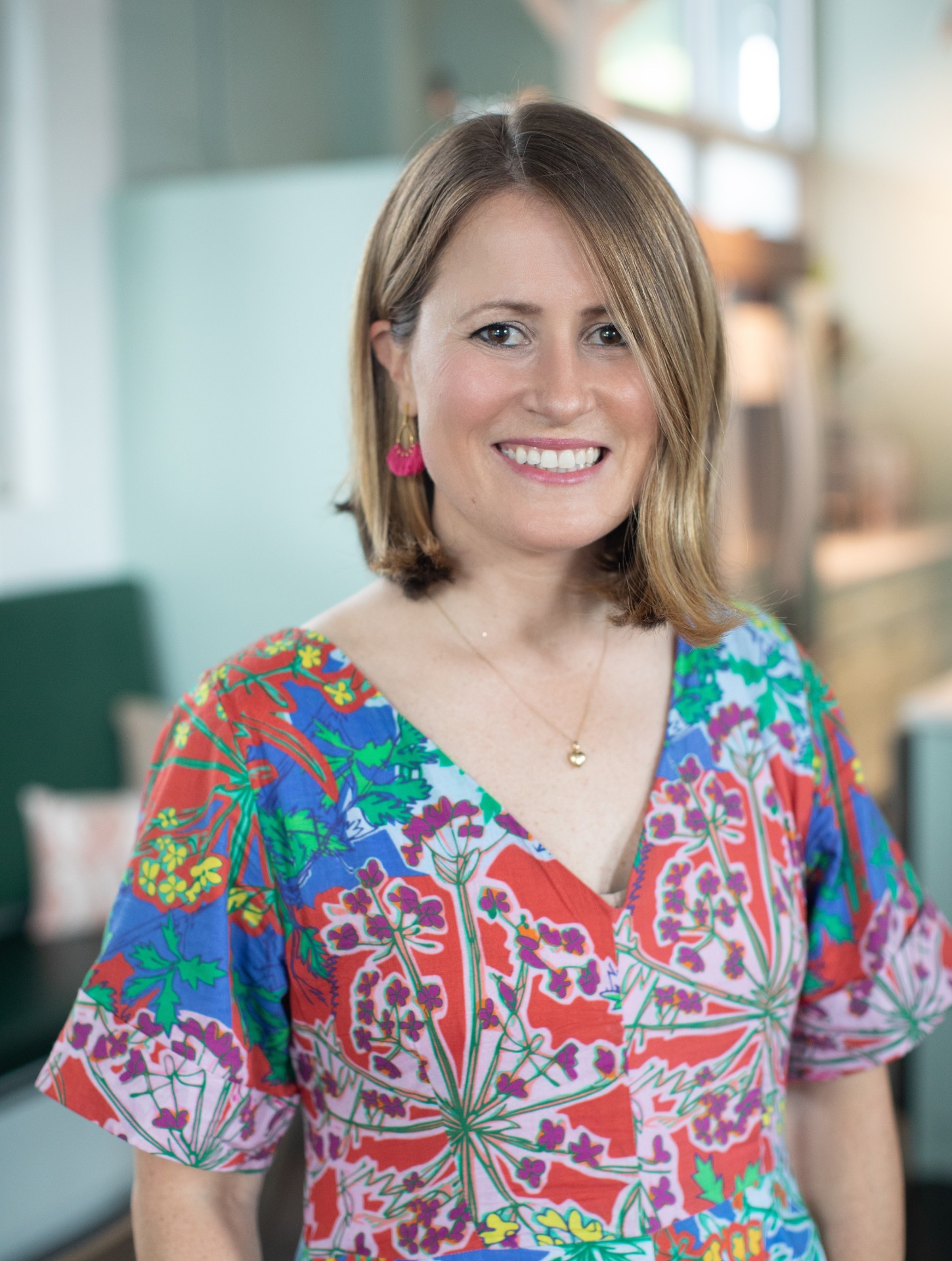We recently connected with Martine Resnick and have shared our conversation below.
Hi Martine, thanks for joining us today. We’d love to have you retell us the story behind how you came up with the idea for your business, I think our audience would really enjoy hearing the backstory.
I had been working in corporate jobs for almost twenty years. Jobs I mostly enjoyed across media, beauty, and consumer products both in the UK and in the US, The companies were fun and (for the time) “good” companies to work for. This was great in my 20s, but in my 30s, as I got older and had kids, the shine started to wear off. I was no longer motivated to travel for work or work on cool projects, I was exhausted juggling two kids under two with corporate life, which wasn’t designed for womxn, let alone working moms. Work-life involved too many meetings, too many layers, decision-makers, cumbersome, drawn-out processes, and an always-on, presenteeism culture. I just wanted to be more focused and work more efficiently so I could go home to my family as I knew there were several more hours of work ahead of me.
I realized there had to be a better way, so I quit corporate life and started The Lola with my Co-Founder Eileen Lee, who had also experienced similar challenges in the consulting and non-profit sectors. The Lola is a Womxn’s Club, Workspace and Digital Community designed to connect professional womxn with other like-valued womxn, so they could support each other while designing and building lives, businesses and carers that worked for them.
We weren’t the first space like this, we’d be inspired by other spaces for womxn popping up across the US. We were the first space in Atlanta at the time and after talking to over 2,500 womxn across the city we knew there was a need, we had a strong sense of what womxn were lacking, so we built it.
We knew we didn’t want to create a space that served only white womxn, we wanted to build a rich community from across different backgrounds, industries, races, and identities. We wanted to create a pool of diverse ideas where we could learn from one another, hear different perspectives and have conversations (sometimes uncomfortable) that weren’t being had in more homogenous environments. More than 50% of our Membership is now made up of Black, Asian, and Latina womxn, we also have womxn as young as twenty-five and our oldest Member is eighty, we call them the Perennials, (coined by Gina Pell) womxn who have a growth mindset and are ever-growing, ever-blooming.
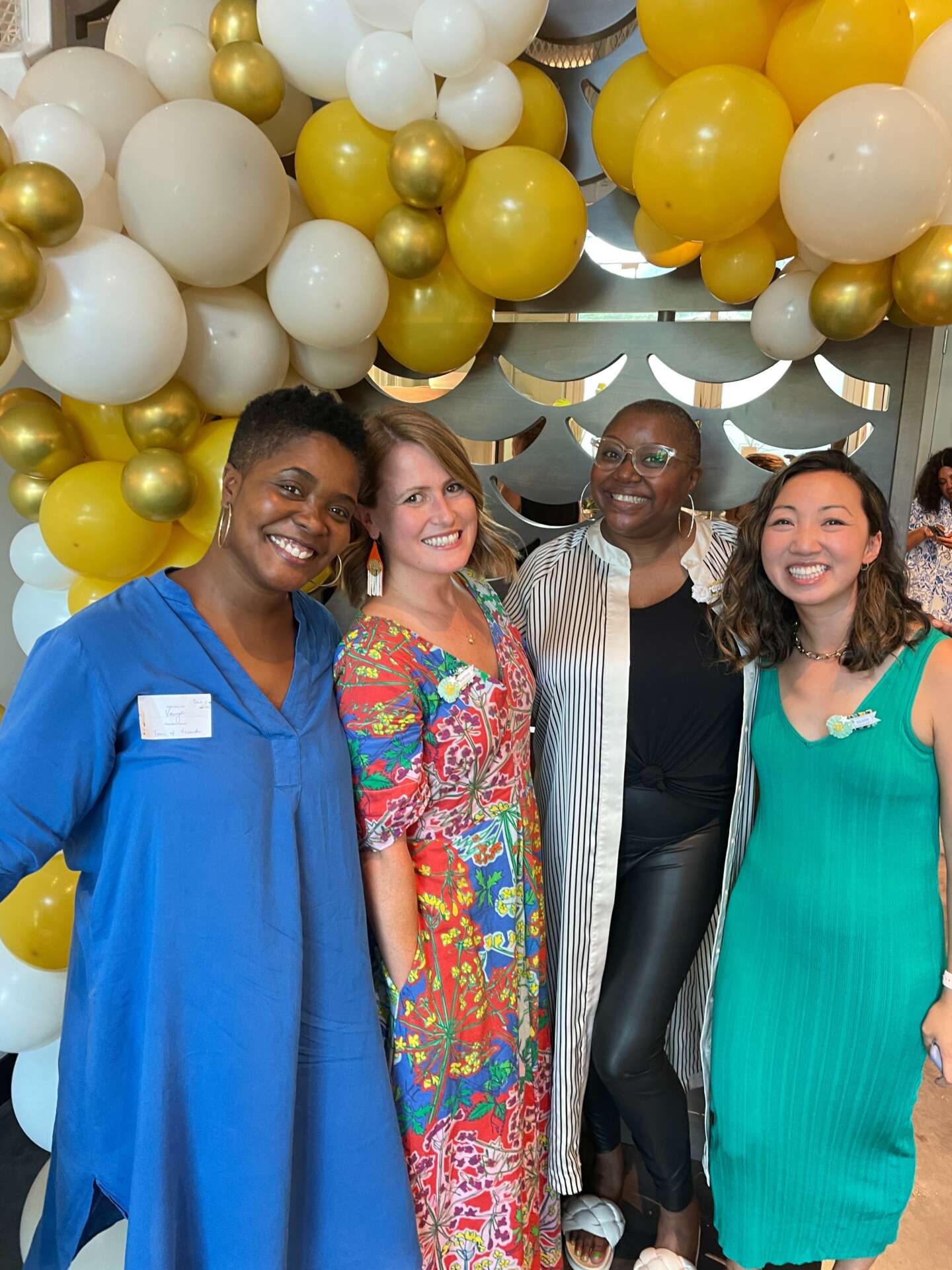
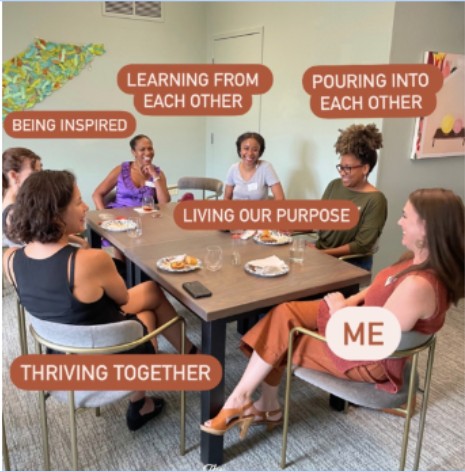
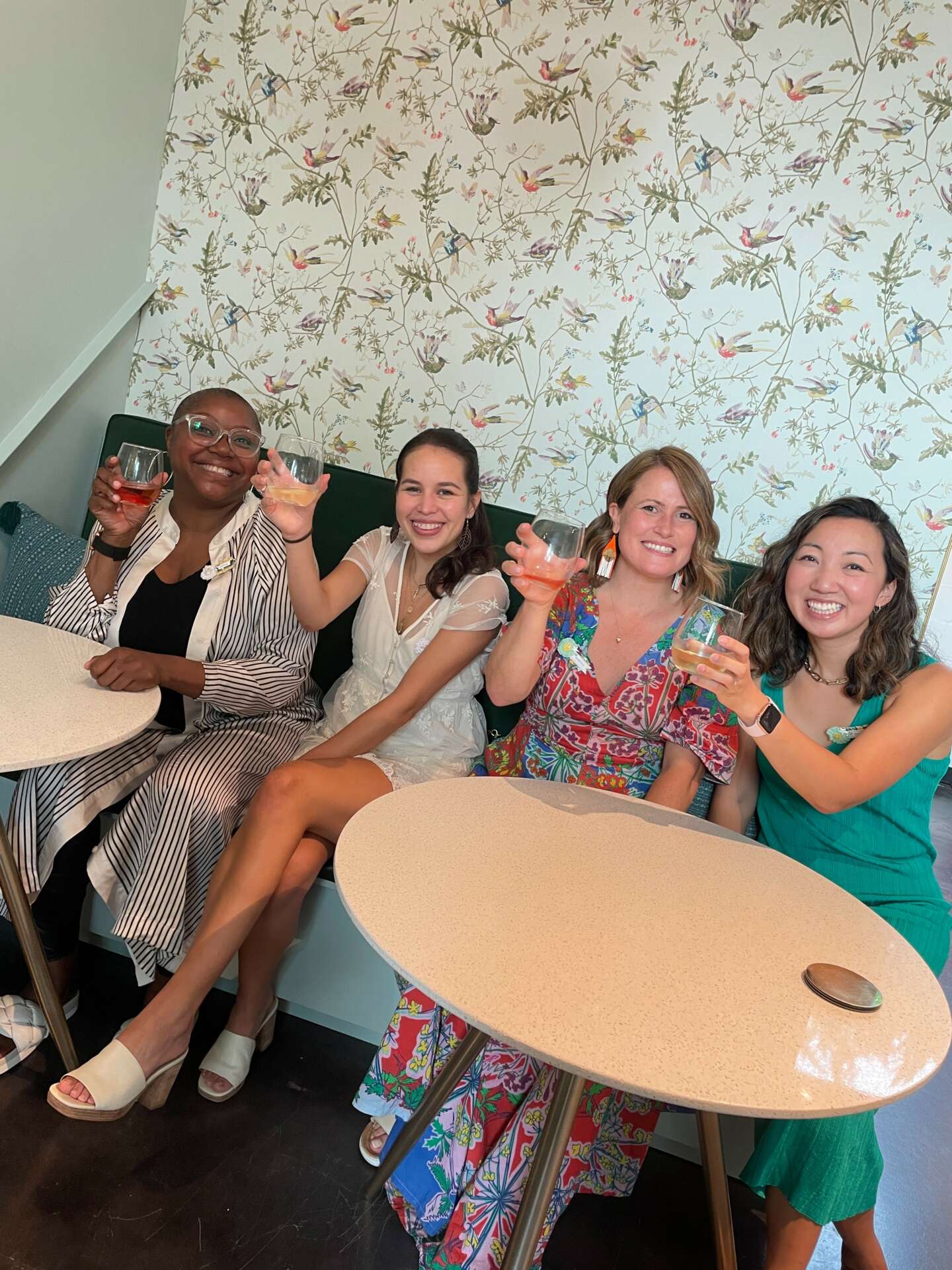
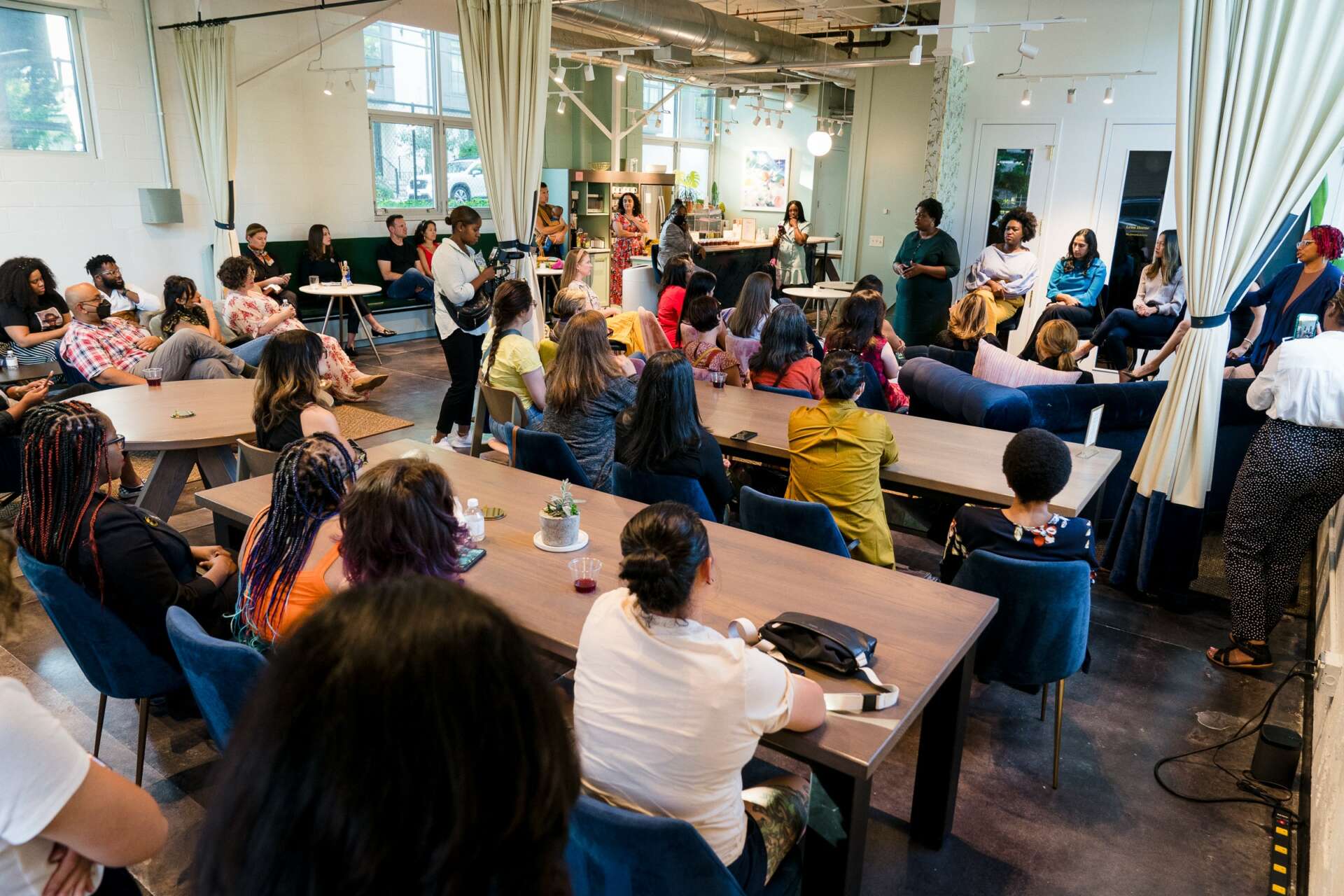
Awesome – so before we get into the rest of our questions, can you briefly introduce yourself to our readers.
The Lola is a Member’s Club, Coworking Space and Digital Community. We bring professional womxn together so they can make high-impact, meaningful connections with other purpose-driven womxn so they can find the tools, resources and support to grow and thrive in business, all with much less hustle and way more ease.
We realized that as womxn got older, corporate life wasn’t working for them. Women were getting squeezed from every angle, everything from the gender pay gap (and that women of color get paid progressively less), the glass ceiling, gender bias, and misogynoir, the lack of flexible working options, the motherhood penalty, the second and third shifts, Me too wasn’t yet a movement, but we all knew it existed. We wanted to create an alternative or at least a space where we could pause, breathe, gather and create an alternative for ourselves.
I think the most incredible thing that has come out of building a community for womxn is the conversations and the camaraderie that happens when you bring womxn together. In mixed environments, we filter out so much of who we are to fit in with the culture, typically designed for men, by men. Womxn have always been pitted against one another, people love nothing more than to talk about a good catfight. That’s nonsense. We’ve only experienced an incredible openness to help, a willingness to listen, and collaboration, not competition. Womxn in the community are genuinely raising each other up and cheering each other on.
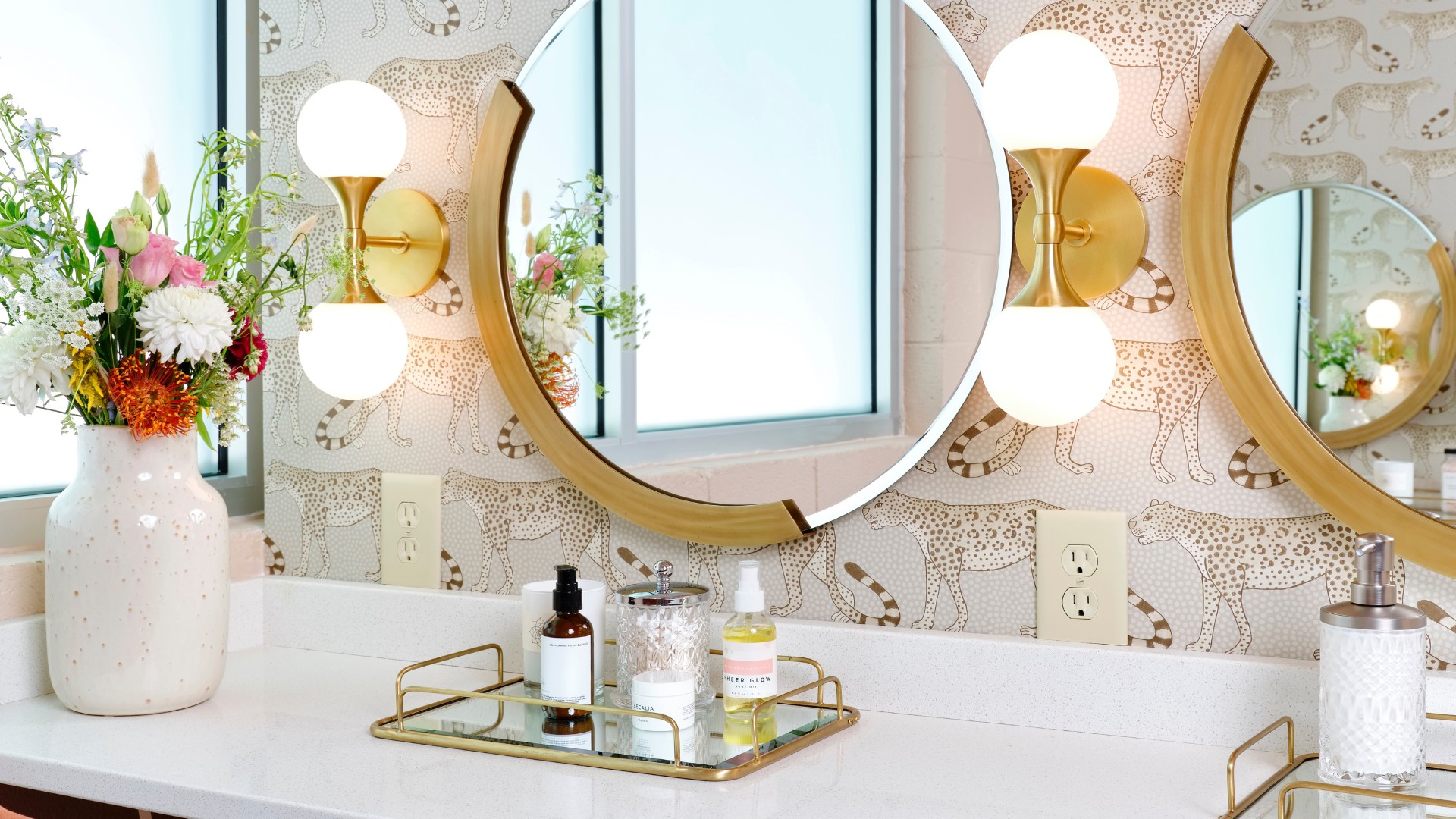
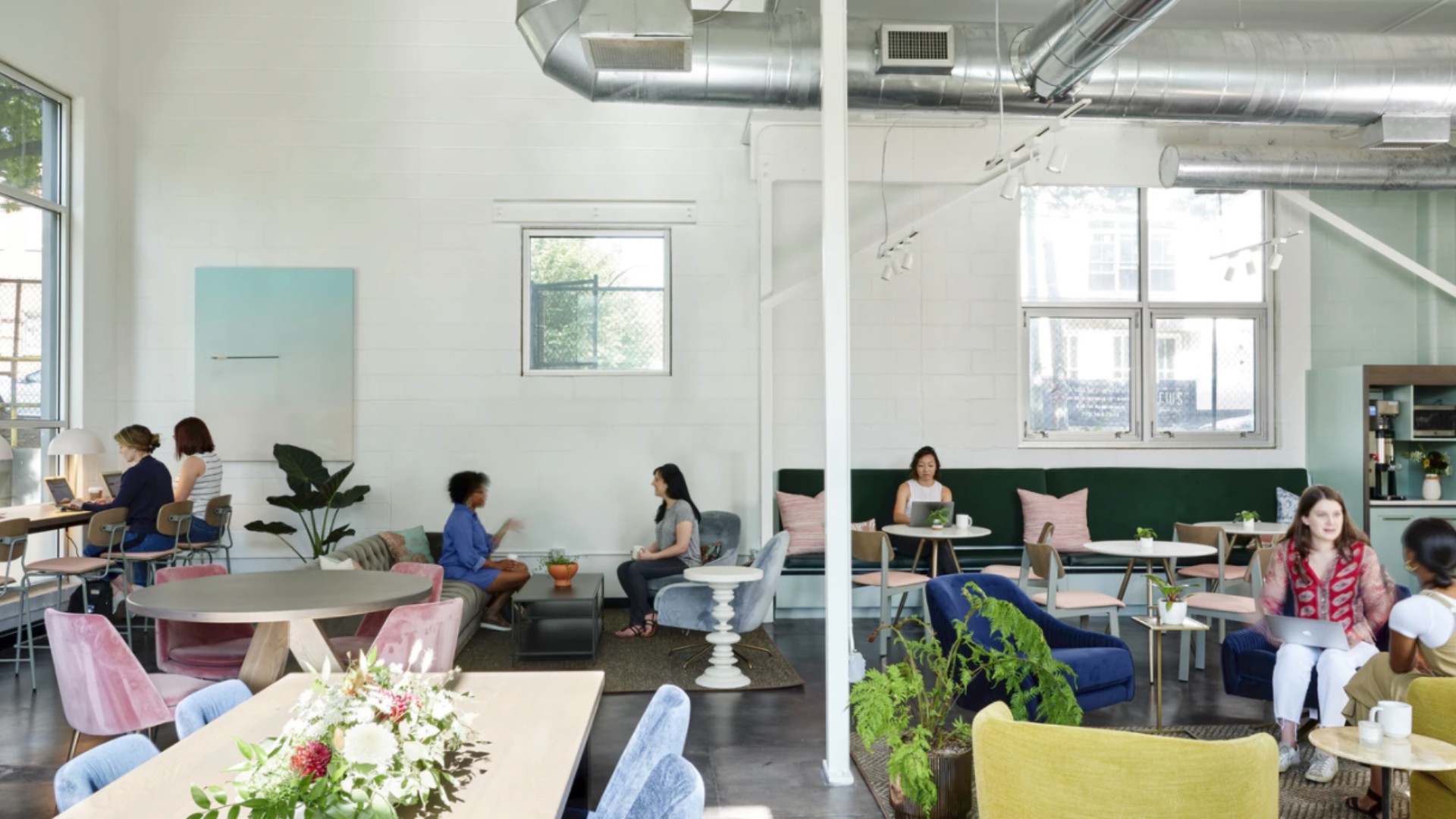
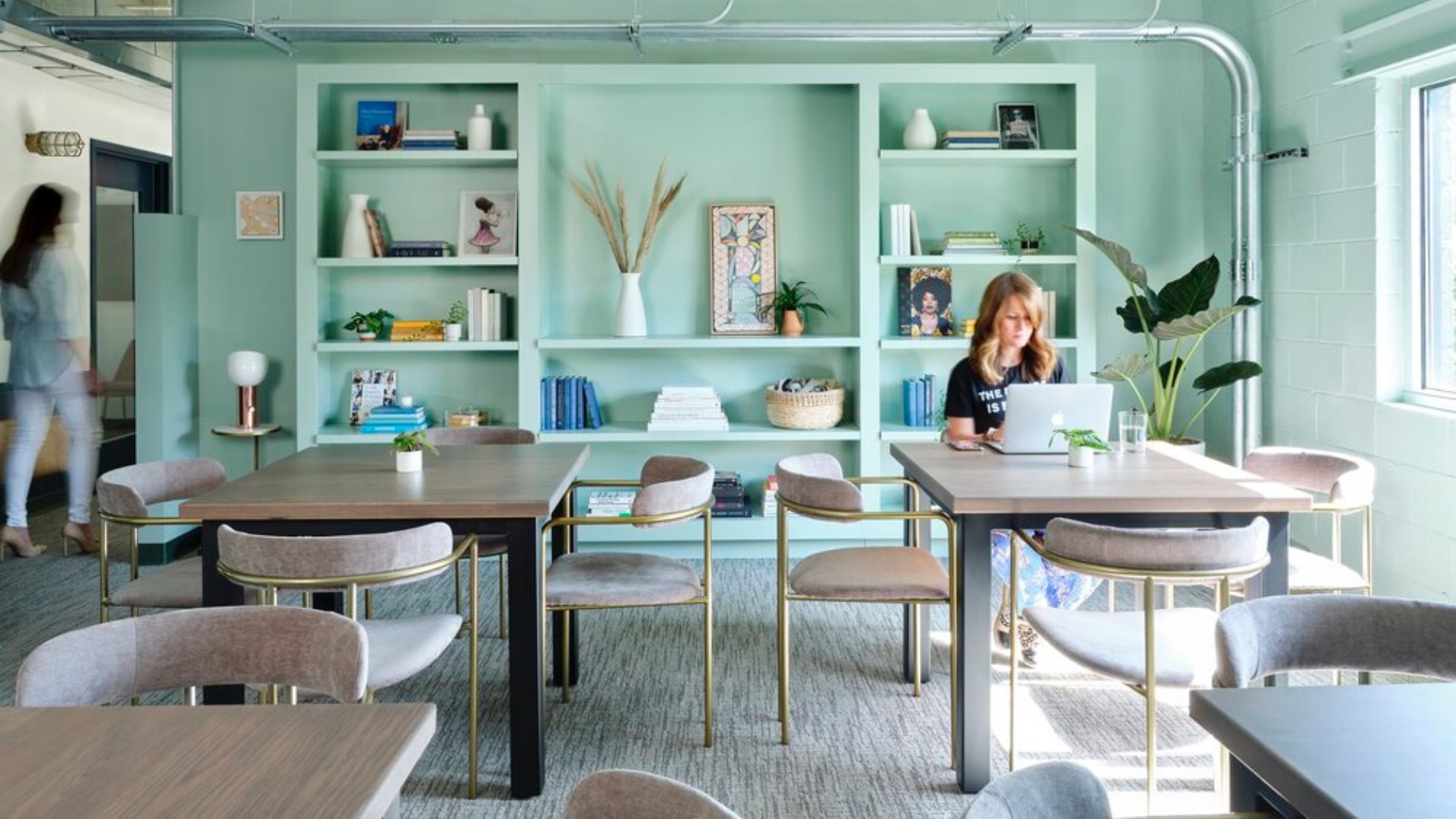
Can you talk to us about how your funded your business?
Prior to starting The Lola we hadn’t personally raised venture capital before. We needed capital for the build-out of the space, but what I didn’t know at the time was people tend to invest in three primary buckets, tech, real estate, or non-profit. We were all of those and non of those at the same time, We had real estate, but weren’t planning to buy our first building. We had an online platform for Members to connect virtually, but we didn’t build the technology ourselves and we had a social mission but are not a 501(c)(3) organization.
Also, we faced the challenge of bias that exists in start-up funding. While no one said anything to us directly, we could feel it in the polite, thanks but no thanks, responses. We were also operating in a city which wasn’t as investment-friendly as other more traditional start-up hubs, although I believe that is changing. Raising capital was a slow process, people didn’t quite get it or how we fit into their existing portfolios. While we raised the money, we operated our business out of a boutique hotel in town, Hotel Clermont, whose management generously allowed us to use the hotel as a base during off-peak hours. This allowed us to build a proof of concept and community at the same time.
After a year of doing weekly gatherings and workshops, we came across the perfect location at the right price and took a leap of faith. We also had an incredible landlord who took a leap of faith in us too, he seemed to get the idea right off the bat and even sat in on one of our touchy-feely workshops to see what we were all about, I give him a lot of credit for that! We signed the lease without having all the money we needed for the build-out. That was scary, but it also showed potential investors we were serious and did help us move conversations along.
The best part of this story though is how building an all-female board provided a large chunk of our funding. We were discussing how awesome it would be to bring together some of the incredible womxn we’d met and create an all-female board, so we approached a couple of people and asked if they would be willing to pre-pay three years of Membership ($5k each) for a two-year seat on our board, we thought we’d get three or four people interested, but in the end, we had twenty-five womxn sign up! We were blown away! Several of those womxn are still active advisors for The Lola today.
Are there any books, videos, essays or other resources that have significantly impacted your management and entrepreneurial thinking and philosophy?
I recently read a book called “Running Remote” by Liam Martin, of Time Doctor. The book talks not only about working remotely but about the mindset and workstyle shift that is needed for asynchronous work to be successful. Asynchronous work (vs. synchronous, office-based work) is on the rise and has been for some time, only accelerated by the pandemic.
While remote work is often talked about in the context of big corporations, the author emphasizes this way of doing business is way more than just working remotely and is applicable to all stripes of companies, big and small, one-person operations, mom-and-pop shops, as well as start-up unicorns, and global organizations. Companies don’t even have to be remote first, or remote at all, to benefit from an asynchronous workstyle.
A few things stood out to me as I was reading the book. Specifically, how much it resonated with what our Members struggle with, asynchronous work, done well, is more inclusive as it addresses a lot of the issues womxn, people of color and non-neuro-typical people face in traditional office environments: time wasted, a lack of focus, flexibility, autonomy, and support, plus ugly office politics. For solo founders and entrepreneurs, it also streamlines their business operations, helping them grow their revenue faster and more efficiently without burnout. Not to mention global access to talent.
As mentioned, asynchronous work does require a shift in mindset and how we work. Firstly, while it might feel counterintuitive, highly detailed documented processes reduce ambiguity, give us our time back, and provides more capacity and creative freedom for the important stuff.
The process rewards the work done, not the loudest voice in the room. It requires focused goals, real-time metrics, transparency, and personal accountability for everything, removing the need for synchronous styles of management including the emphasis on in-person meetings and status check-ins, endless oversight, and micromanagement. It also values trust and faith that people will do the work.
Even companies like The Lola, with a physical location, benefit. If we want to scale and have multiple locations in multiple cities, working asynchronously equips and empowers people to do what we do, we can’t physically be in all places at all times.
With the changing tides, spaces like The Lola will only become more relevant as people look for new ways to work and connect. Asynchronous does not mean you don’t have any human contact, people still need in-person connection and support in their local communities. Members at The Lola (unlike in an office environment) choose to be there, they can come and go as they please, dress as they like, feel safe, seen, and heard plus avoid office politics, instead finding support and inspiration from like-valued peers that want to see them succeed.
Contact Info:
- Website: www.the-lola.com
- Instagram: https://www.instagram.com/thelola_women/
- Facebook: https://www.facebook.com/thelolawomen
- Linkedin: https://www.linkedin.com/in/martineresnick/
Image Credits
Photos: Mali Azima, Leah Roth and Shanita Miller


